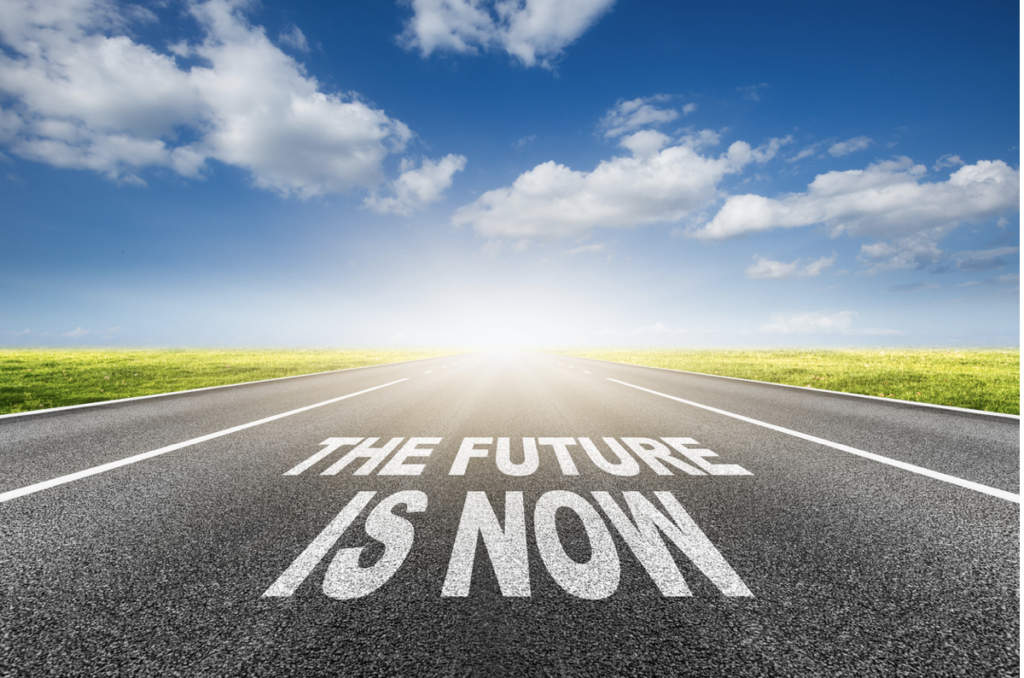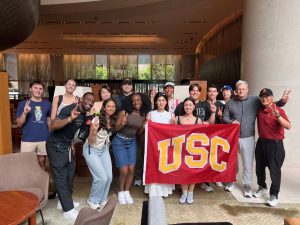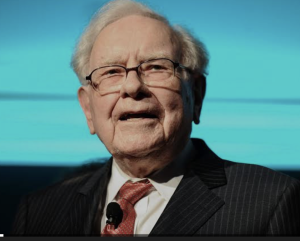Throughout my career there is one piece of advice given to me I have shared with almost everyone I have worked with: “The best way to predict your future is to create it.”
This quote was first introduced to me by a former boss, who attributed it to Warren Buffet. However, if you go online and search its origin, others connect it to Abraham Lincoln.
Regardless of the visionaries who coined this phrase, the message/belief is near and dear to me. If you want to do something to create your future, the person to make it happen is you. No one else is going to care as much as you do about the change you want to see in your life.
I was reminded of this belief last week listening to a podcast featuring the famous futurist, Jane McGonigal. McGonigal is a Stanford University Professor, an author and a world-renowned designer of alternate reality games, or games that are designed to improve real lives and solve real problems. In fact, she is the Director of Games Research & Development at the Institute for the Future, a non-profit research group in Palo Alto, California. I have known about the Institute for the Future for many years and have been fascinated by their work. The interview I listened to, was her speaking to Tim Ferriss on the Tim Ferriss Show. This was most enlightening, but more on that later.
To start, if you have a spare 19 minutes, I encourage you to watch McGonigal’s Ted Talk here, entitled, “The Future is Dark (and that is a good thing)”.
In this talk, I value her perspective on how to create the change you want to see in your life. She suggests that envisioning change of all kinds takes an imaginative leap. In the presentation she offers three techniques to imagine how to create your future, which she calls the “Triangle of What If”. They include:
- Predicting The Past
- Remembering The Future
- Hard Empathy
All three techniques, she advises strengthens our neurological pathways required to imagine the future, and they result in increased inventiveness, open-mindedness and creativity, innovation and capacity for change.
Her final counsel in this Ted Talk is this: “To make a difference literally means to make something different.”
And by the way, the title of the Ted Talk – “The Future is Dark” – suggests the future is a blank slate that we can create, change and improve, it is all up to us!
Urgent Optimists
McGonigal is also a leader of the Institute for the Future community, Urgent Optimists. Urgent Optimists brings together people who want to feel authentically hopeful about the future, and who are working to create positive transformation in society and in their own lives.
According to the website and McGonigal’s podcast interview, Urgent Optimism is a highly motivating and resilient mindset that combines foresight with creativity. It’s made up three key psychological strengths, which can measured and improved upon as a community.
- Psychological Flexibility. This is the opposite of being “stuck” mentally. It’s the ability to recognize that anything can become different in the future, even things that seem impossible to change today.
- Realistic Hope. This is a balance of positive and shadow imagination. It’s knowing which risks and threats it makes sense to worry about – and which new solutions, technologies, ideas, and positive actions it makes sense to be excited and optimistic about.
- Future Power. This a feeling of control and genuine agency to directly impact how the future turns out, by taking intentional action today.
The website further suggests Urgent Optimism is not a fixed personality trait. It changes, often, throughout our lives. More importantly, it is changeable – we can purposefully build more urgent optimism when we need it most.
More on Urgent Optimists can be found here: urgent optimists
Scenario Planning
Finally, to the podcast. One of the most most memorable parts of McGonigal’s podcast interview was a simulation she conducted at the Institute for the Future called “Dark After Dark.” In this simulation they asked people to practice not using anything with an artificial light source after sunset. This was for a slightly different scenario than blackout scenarios, but it was an interesting way to develop essentially callouses for a world in which we might not be able to open our laptops, use our phones or other power sources. The result would be true darkness. That was an experiment in just how people’s behavior would change and how much they were willing to change. According to McGonigal, “It was more of an experiment than a future forecasting, serious future forecasting effort. But, I absolutely think it’s worth preparing for.”
McGonigal makes the argument in the podcast that by doing scenario planning for the future, when shocks occur, those that have adequately prepared react much differently and calmly, and they are more prepared to deal with future shocks and scenarios that those that just let events happen.
If you want to listen to something lengthy but interesting while you are exercising, this podcast is worth considering.
There is much here to think about friends. If you only have a few minutes do watch the Ted Talk, and if you have more time to spare, I also recommend the podcast.
Here’s to wishing everyone a great day, week, month, year and future ahead.
Onwards and upwards.





Hi Scott,
I certainly agree with you. To be successful it helps if you can create your own path and follow it. In the past hour I was on a Zoom call for a Faculty Spotlight Interview, organized by the Office of Faculty Affairs, here at the University of Miami. We discussed my career at the University and how I achieved what I have during my years at the University. A feature of the discussion focused on how I created my job/position at the University and have been able to stay with it for such a long period of time.
Excellent, and well-timed Monday Morning Mojo.
Cheers,
Marc
You are a legend Marc. Thanks for this feedback. Looking forward to seeing you.
Thank you for the Monday mojo. This is great, just what I needed
“The future has not been written. There is no fate but what we make for ourselves.” – Terminator the movie. One of my favourite quotes!
One of my daughters spent her career with American Express travel. After college she started as a corporate reservationist. On a daily basis, by phone and by computer, she interfaced with meeting planners. As much as she enjoyed building itineraries and getting the client to the meeting destination it didn’t take very long and she was bored.
She decided she wanted to be a meeting planner and figured out a way to weasel in and get noticed by excelling at it from the get-go. It didn’t take long before she became manager of the meeting planners. She traveled the globe in that capacity.
She was always comfortable with numbers and literally thirsted for solutioning problems big and small. Once more she reset her mind, this time on forecasting and statistics. She wound up managing staff on five continents.
At this point, she created from the ground up, a far more efficient travel system coordinating venders and suppliers into one resource rather than the cumbersome individual process that cost the company unnecessary manpower and time.
My daughter lived her career imagining the job she wanted to do and went about creating it. It’s just as Professor McGonigal points out in steps 1, 2 & 3 its ours for the taking.